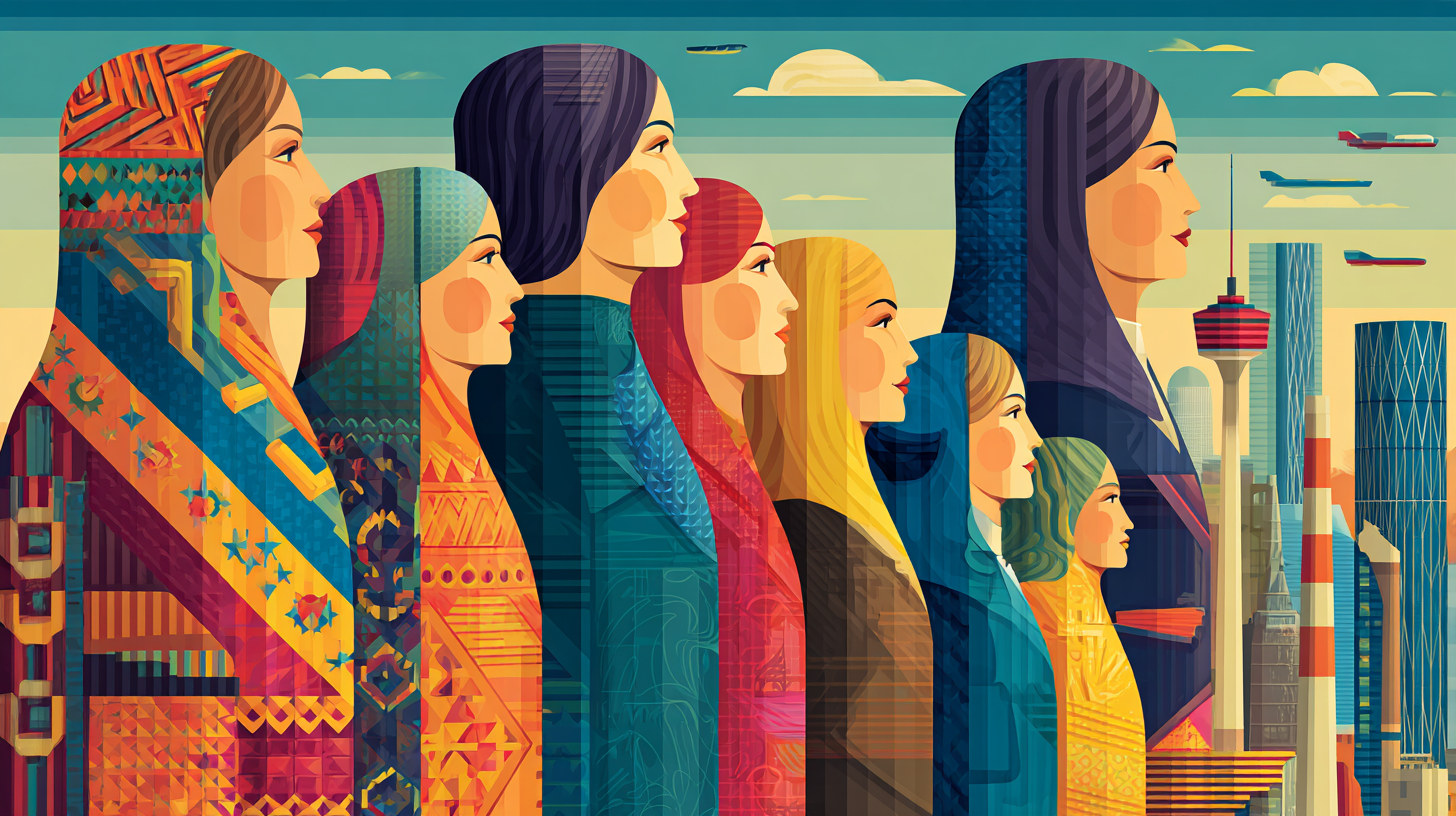How Women Are Shaping Leadership in the Middle East

Female leadership is also taking off in the Middle East. Trailblazers like Hana Al Rostamani are helping to redefine what it looks like. While there is still much to be done to empower women, the path forward is clear: wider access to mentorship and professional training could, in particular, help speed up the process.
Goal 5 of the UN’s SDG is to promote gender equality and empower all women and girls. In 2024, 33.5% of senior management positons are held by women worldwide. This global percentage, which remains relatively stable across regions, is notably driven by the rise in the number of female CEOs around the world in recent years: it increased from 5% in 2012 to 19% in 2024. More surprisingly, women’s advancement is also noticeable in the Middle East.
Hana Al Rostamani: Proof in Action
Forbes Middle East reveals the 100 most powerful businesswomen in the Middle East for 2025. The list represents 32 sectors and 29 nationalities. Among them is Hana Al Rostamani, CEO of First Abu Dhabi Bank, who has held the top position for the third consecutive year. Hana Al-Rostamani is a graduate of George Washington University in the United States. She holds a Bachelor of Science in Business Administration and a Master of Science in Information Management. She possesses two decades of experience in banking and financial services. She embodies what the list shows: women leaders are starting to become more visible by occupying strategic positions in companies.
Read also: Unmasking Anger: Do Women have the right to get Angry (just like Men)?
This shift indicates a change in the mindset and highlights that women have skills and competencies enabling them to acquire leadership positions. To occupy these strategic positions, Hilal et al. (2024) in their study entitled “Female educational leadership in the Arab world: a systematic review of published research literature”demonstrate that women are agentic, have self-determination, and are persistent. Furthermore, a study undertaken by Shaya and Abu-Khait (2017) demonstrated that Emirati women adopt a transformational leadership style through encouraging employees’ creativity, communicating their vision to employees, motivating and supporting their team, and by being a model to their employees.
What Holds Women Back
Although women are becoming more visible in the Middle East, the figures mentioned above prove that they are still struggling to progress in their career and are encountering obstacles. Consequently, women were only 19% of the workforce in 2022 according to the World Bank. Among these hurdles, the sociocultural barriers that affect their career advancement, the masculine ideologies that are prevalent, and the belief that women should remain at home to take care of their families.
These points were highlighted by a study undertaken by Abadi et al. (2020) that analyzed the challenges met by women managers in the Middle East. The study indicates the dominance of males’ ideas in societies and organizations in the Middle East, the lack of gender equality, and the absence of training and professional development workshops that hinder women to progress in their careers.
Fostering Women’s Leadership
Hence, to help more women in their professional life in the Middle East, changes must occur not only in the mindsets but also at the organizational level and institutional level. Organizations and governments need to implement policies and procedures enabling women to be more empowered, trusted, and encouraging them to occupy managerial and leadership positions to progress in their career. For instance, in France there is a law called “The Rixain Law” which imposes quotas in management positions in large companies by 2030: 40% of women executives, otherwise companies will be financially penalized.
In addition, women should benefit from having mentors and role models to support them and guide them which is something almost missing nowadays. By having a role model and a mentor, women will have more self-confidence and will be encouraged to overcome barriers to achieve their goals.
A study undertaken by Chasserio and Bacha (2024) shows how a French Women Only-Train Programmes (WOTPs) can help women to develop soft skills in their professional life mainly their self-confidence and self-efficacy. In our sample, 47 participants attended the programme and they were between 34 and 54 years old with a relatively high level of education (bachelor’s and master’s degrees). In addition, 11 of our participants were unemployed and the 36 other participants occupied various professional positions, such as executive assistant, product manager, IT manager, project leader, strategy manager, HR manager, within a large range of sectors (services, retail, construction and more).
A Win-Win Dynamic for All
Furthermore, women should build strong networks to rely on and participate in training programs to enhance their leadership skills. Professional networks offer important workplace connections and resources, and training programs help women acquire new skills to tackle challenges.
Workplace transformations are taking place, and women are moving up the ladder and occupying leadership roles. In the Middle East, women are breaking the glass and are starting to occupy leadership positions in companies. This will have a positive impact on society, companies, and will change the role of women. This point was illustrated by a study undertaken by Ferrary (2023) that shows that the presence of women in the top-level management will have a positive impact on the operational profitability, the company’s environmental responsibility, and the company’s social responsibility.
That’s why by creating awareness, putting in place initiatives, and implementing policies women in the Middle East can benefit from fair working conditions and seize opportunities like their male counterparts to progress in their careers.



